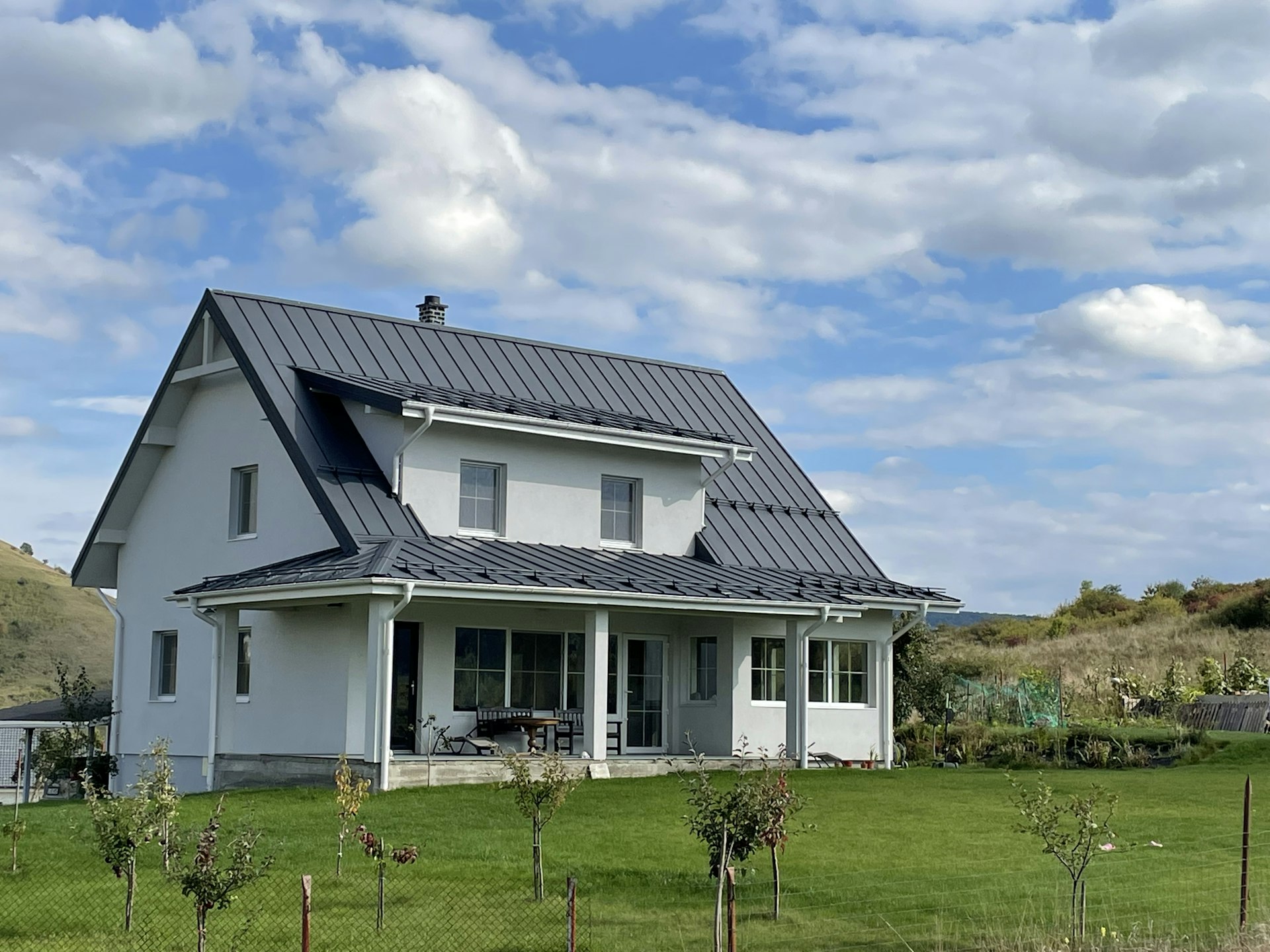Historic Neighborhoods: Unlocking Real Estate Growth in 2025

Photo by Julia Taubitz on Unsplash
Introduction: The Enduring Appeal of Historic Neighborhoods
Historic neighborhoods remain a cornerstone of urban identity and have increasingly become focal points for real estate growth. These communities, often characterized by distinctive architecture, cultural heritage, and walkable environments, attract both homeowners and investors looking for unique properties with lasting value. In 2025, market trends signal renewed momentum in these areas, driven by demographic shifts, changing buyer preferences, and policy incentives. This article explores current trends, offers actionable guidance, and provides step-by-step strategies for accessing opportunities in historic neighborhoods.
Current Market Trends: Growth in Historic Neighborhoods
Recent data reveal that the real estate market is experiencing notable growth in select regions across the United States. According to Realtor.com , home sales in top housing markets for 2025 are projected to rise between 13.5% and 27.1%, with many of these areas boasting rich historic character [1] . The Sun Belt, including cities such as Colorado Springs, Miami, and El Paso, demonstrates both historical significance and high growth potential. These cities have managed to mitigate high mortgage rates by leveraging a mix of outright homeownership and access to government-backed mortgage loans such as VA and FHA loans [1] .
In addition, a surge in newly listed homes across all four U.S. regions underscores increased seller activity, with the South-an area known for its historic districts-coming closest to full inventory recovery since the pandemic [3] . Notably, cities like Nashville and Charleston, South Carolina, have been identified as “movers and shakers” due to their strong year-over-year improvement and historical appeal [4] .
Why Historic Neighborhoods Are Gaining Momentum
Several factors contribute to the renewed interest in historic neighborhoods:
- Architectural Distinction and Heritage: Buyers are increasingly drawn to neighborhoods with preserved architecture and a sense of history, offering a lifestyle unavailable in newer developments.
- Community Character: These areas often feature vibrant local businesses, tree-lined streets, and established community organizations, fostering a strong sense of belonging.
- Walkability and Urban Amenities: Proximity to downtowns, parks, and cultural institutions adds daily convenience and lifestyle value.
- Investment Potential: Limited supply and growing demand can lead to above-average appreciation rates over time, especially as more buyers seek unique, character-rich homes.
For example, Salt Lake City, with its colonial history and thriving arts scene, has seen home values grow by 2.3% in 2025, with homes selling in just 19 days on average [2] .
How to Access Opportunities in Historic Neighborhoods
Accessing real estate opportunities in historic neighborhoods requires a strategic approach. Here are steps and alternatives for buyers and investors:
- Define Your Criteria: Determine whether you are seeking a primary residence, investment property, or vacation home. Clarify your budget, preferred architectural styles, and desired amenities.
-
Research Local Markets:
Use national platforms such as Realtor.com and Zillow to analyze current listings, sales data, and neighborhood statistics. These sites provide up-to-date market insights, including median home prices, days on market, and historical trends.
Example:
In July 2025, the U.S. median home price was $443,141, with inventory up 12% year-over-year [5] . - Partner with Local Experts: Engage a real estate agent who specializes in historic properties. Local agents offer insight into neighborhood dynamics, preservation guidelines, and potential incentives. You can search for qualified agents through major real estate platforms or by contacting local historical societies.
- Explore Financing Options: Historic homes may qualify for specialized financing, including government-backed loans (VA, FHA) and renovation loans. To find out more, you can contact your bank, mortgage broker, or visit the U.S. Department of Housing and Urban Development’s official website and search for “historic home purchase programs.”
- Understand Preservation Requirements: Many historic districts have regulations governing renovations and exterior changes. Before purchasing, review local ordinances and consult with city planning departments or preservation commissions to ensure compliance.
- Evaluate Investment Prospects: Assess long-term appreciation potential by examining recent sales, upcoming infrastructure projects, and demographic shifts. Many historic neighborhoods are seeing renewed interest from younger buyers, contributing to rising values [1] .
- Consider Alternative Approaches: If inventory in your target area is limited, expand your search to adjacent neighborhoods with similar historic features or consider properties requiring renovation.
Practical Steps for Buyers and Investors
To effectively participate in the growth of historic neighborhoods, follow these actionable steps:
- Start Early: Competition can be fierce in desirable historic areas, so begin your search well in advance and get pre-approved for financing. Use BuyAbility tools on major real estate sites to assess your purchasing power [2] .
- Attend Open Houses and Community Meetings: Engage with local residents, attend historic home tours, and participate in neighborhood events to gain firsthand knowledge of the area.
- Investigate Incentive Programs: Some cities offer tax credits, grants, or low-interest loans to encourage preservation and rehabilitation of historic properties. For available programs, contact your city’s historic preservation office or search for “historic rehabilitation tax credits” with your state’s official government portal.
- Due Diligence: Carefully inspect the property for structural issues, outdated systems, or code compliance concerns. Work with inspectors who have experience in historic homes.
- Plan for Renovations: Budget for potential repairs or updates, keeping in mind that certain changes may be restricted. Consult with contractors who understand preservation standards.
For those seeking investment properties, research indicates that historic districts often outperform the broader market during periods of economic stability due to their limited supply and enduring appeal [4] .
Challenges and Solutions
While historic neighborhoods offer significant opportunities, they also present unique challenges:
- Higher Upfront Costs: Properties may be priced above comparable homes due to their character and location. However, long-term appreciation and unique features can offset initial expenses. Buyers can look for homes that need cosmetic upgrades to secure better pricing.
- Strict Preservation Guidelines: Regulations can limit renovations and exterior changes. Solution: Engage with local preservation boards early in the process and factor these requirements into your renovation plans.
- Maintenance Needs: Older homes often require more maintenance. Solution: Schedule regular inspections, and prioritize updates to roofing, plumbing, and electrical systems with experienced professionals.
- Inventory Constraints: High demand and limited supply can make it challenging to find available properties. Solution: Expand your search radius, monitor new listings closely, and act quickly when suitable properties become available.
Alternative Pathways for Accessing Historic Neighborhoods
If purchasing a home directly is not feasible, consider alternative ways to participate in the growth of historic neighborhoods:
- Real Estate Investment Trusts (REITs): Some REITs focus on properties in historic districts or urban revitalization projects. Research REIT offerings through major brokerage platforms.
- Short-Term Rentals: Acquiring a property for use as a short-term rental in a popular historic neighborhood can generate income while building equity. Ensure compliance with local regulations concerning rental properties.
- Community Investment Initiatives: Some cities have neighborhood revitalization programs that allow residents to participate in local development through funding or volunteer opportunities. Contact your city government or local nonprofit organizations for current opportunities.
Key Takeaways
Historic neighborhoods offer a powerful blend of lifestyle, community, and investment potential. In 2025, growth in these areas is being fueled by increased market activity, demographic shifts, and renewed appreciation for cultural heritage. Buyers and investors can access these opportunities by conducting thorough research, partnering with local experts, and leveraging available incentives. While challenges exist, informed planning and strategic action can help you unlock the full potential of historic neighborhood real estate.

Photo by Julia Taubitz on Unsplash
References
- [1] Realtor.com (2025). Top Housing Markets for 2025: Cities Where Home Sales Are Set To Surge.
- [2] Zillow (2025). The 10 Hottest Housing Markets for 2025.
- [3] Realtor.com (2025). June 2025 Housing Market Trends Report.
- [4] PwC (2025). Emerging Trends in Real Estate® 2025.
- [5] Redfin (2025). United States Housing Market & Prices.
MORE FROM couponito.com













